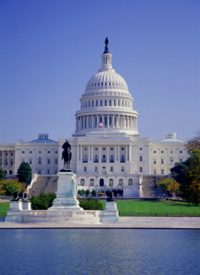
According to the Congressional Record, through November the House had approved 326 bills, the fewest in at least 10 non-election years; the Senate had passed 368 measures, the fewest since 1995. Conversely, the House passed 970 measures in 2009 and 1,127 in 2007, and the Senate for those years approved 478 and 621, respectively.
"The goal for this Congress is to stress quality over quantity in terms of the flow of legislation on the House floor," House Majority Leader Eric Cantor (R-Va.) wrote in a letter last December to his colleagues. "I intend to lengthen the time for consideration of bills in order to improve quality and deliver results. Gone are congratulatory resolutions. Post office namings will be handled on a less frequent basis."
While the number of proposed bills has not taken a notable plunge, the 2010 election, which transitioned the House majority over to the Republicans, surely impacted this year’s legislative process. "We have eliminated commemorative legislation and have increased the percentage of bills brought to the floor under rules rather than suspension to allow for more transparency and deliberation in the legislative process," said Cantor's spokeswoman Laena Fallon.
In comparing 2011 to past years, in terms of the number of bills approved, congressional gridlock is an arguable point, but some critics are taking 2011’s bill record and translating its legislative results into a skewed picture of failure. "The 112th Congress is on pace to be one of the least productive in recent memory," the Los Angeles Times reported in July. "By most of those metrics, this crowd is underperforming even the ‘do-nothing Congress’ of 1948…. There is no shortage of explanations for the apparent lack of legislative success."
Shuffling through the issues of the Congressional Record and analyzing results based solely on the number of approved bills does not necessarily represent either "success" or "productivity" of a legislative session, or the government’s degree of power. Assuming that a higher number of approved bills means the federal government has expanded, or has increased spending, is not always accurate, especially considering the devious spending schemes of the 21st-century Congress.
In observing the Congressional Records of the 1950s and 1960s, one finds a significantly higher number of approved measures than in the 1990s and 2000s. But contrary to what many critics note, this does not necessarily mean the federal government of the mid-20th century indulged in higher spending and enacted more rules and regulations than the governments of recent decades.
When Congress cannot approve multiple separate pieces of legislation in a timely fashion, it will often bundle the bills together into the scheme known as an "omnibus" spending bill — which often leads to billions of dollars in pork being wasted on congressional cronyism in one piece of legislation.
For instance, in March 2009, President Obama signed the Omnibus Appropriations Act, a $410-billion bill harboring a reported $8 billion in earmarks and thousands of congressional pet projects. The $1.7 million that went to a honey bee laboratory in Texas, the $346,000 for research on apple fire blight in Michigan and New York, and the $1.5 million for grape and wine products were not counted as three separate bills, but one.
Whether abusive measures are taken by the executive branch will also determine either the rise or fall in the role and power of government. Presidential actions in modern times — particularly relating to military action in undeclared wars — have rendered the legislative branch, and in turn the Constitution, less relevant.
Under Article 1, Section 8, the Constitution explicitly construes the federal government’s authority for military engagement, and says that only Congress may provide a declaration of war — not the President. Obama fought bipartisan criticism for usurping congressional authorization in sending U.S. military forces to join in attacks in Libya earlier this year. "When there is no imminent threat to our country, he cannot launch strikes without authorization from the American people, through our elected representatives in Congress," wrote freshman Congressman Justin Amash (R-Mich.), in March on his Facebook page. "No United Nations resolution or Congressional act permits the president to circumvent the Constitution."
The last time Congress made a declaration of war was World War II, yet the U.S. government has since involved itself in countless wars (Korea, Vietnam, Iraq, the Persian Gulf, Afghanistan, Syria). Indeed, over the decades, many U.S. Presidents have used "humanitarian" motives to act in America’s "best interest" to justify their blatant abuse of constitutional authority. And such action, of course, has no reflection on the number of bills passed by the legislature.
Considering the massive omnibus spending bills and the abuse of executive authority, a "do-nothing" congressional session does not always translate as "less productive" or "unsuccessful." And the number of bills passed in a session is not indicative of the power of government, as Washington politicians get more creative with their legislative actions and as the executive branch continues to assume increasingly more authority than granted under the Constitution.



